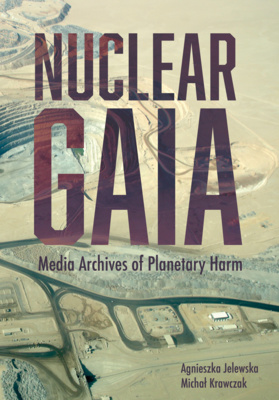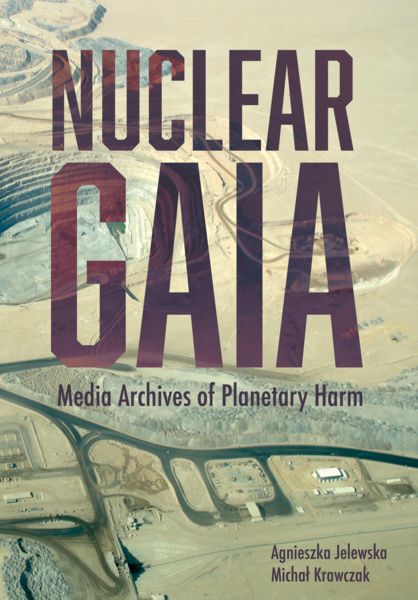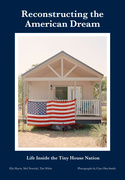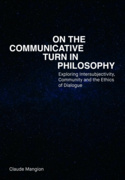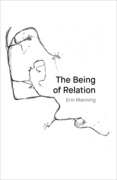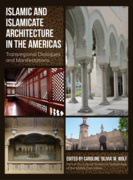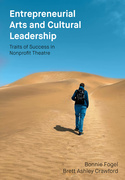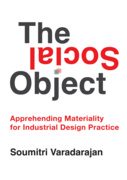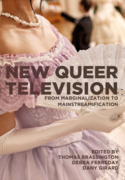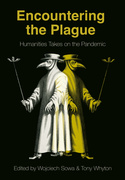Nuclear Gaia (Book)
Media Archives of Planetary Harm
The book analyses new media archives on nuclear violence toward humans and the environment in the context of the ongoing project to transform Earth into Nuclear Gaia as a consequence of a confluence of political, military, economic, and scientific decisions made back in the 1940s, related to the development of nuclearity. 24 b&w illus.
Edition
Describes the transformations we have witnessed due to the development of nuclear science and technology, accelerating policies interdependent on energy, and military procedures that have led us to make a provocative claim that, in many respects, planet Earth is getting closer to the embodiment of the project we call Nuclear Gaia.
The book examines media archives and online platforms that recover data and memory and shape community knowledge of nuclear events from the distant and nearer past. These are the pieces of evidence that we are on the eve of creating new forms of social justice, carried out by open-source investigations (OSINT) groups, independent researchers, artists, media makers, activists, local communities, and civic groups.
Thus, analysing nuclear processes and their social and environmental consequences is no longer the exclusive domain of experts, scientists, politicians, and the military. The authors hope that such communities’ practices and decolonial discourses, combined with the critiques within our methodology as post-nuclear media studies, can also change the fate of nuclear industry victims by creating media space to discuss and regain justice as socially sanctioned and shared rules for understanding and using nuclear energy both in past and the future.
Agnieszka Jelewska, Ph.D., Professor at the Adam Mickiewicz University in Poznań and director of the Humanities/Art/Technology Research Center AMU. She examines the transdisciplinary relations between science, art, culture, and technology in the 20th and 21st centuries, their social and political dimension. She is also a curator and co-creator of art and science projects.
Michał Krawczak, PhD, assistant professor at Anthropology and Cultural Studies Department of the Adam Mickiewicz University in Poznań, Poland, co-founder and program director of the Humanities / Art /Technology Research Center. Researcher, designer and curator of art and science projects. His main research field is modern forms of violence from the perspective of media and cultural studies.
List of Abbreviations
List of Figures
Introduction: Welcome to Nuclear Gaia
1. Post-nuclear Media Studies and Infrastructures of Nuclear Regimes
Media archives and grassroots practices
Quantum entanglements
Digital information, energy, and matter
Sentient media and radiation
Quantum media theory
Media as geological sedimentation
Infrastructures of violence
Hyper-aesthetics of nuclearity
2. Nuclear Gaia: Oscillating Between Spacetimemattering and the Nuclear Colonial Drive
Splitting the atom, or the intertwining of scientific experiments, historical time and military policies
Masculinist nuclearism
Nuclear criticism: The end of linear archives and the bomb as a medium
Spacetimemattering and the memory of nuclear violence
Nuclear Gaia as technologically mediated Earth design
Colonial traces of Nuclear Gaia
A lustful gaze at the exosphere and the moon as the 8th continent
3. From Biosphere to IT Gaia
The Earth in the state of total peace
Vernadsky’s biosphere and its noöspheric transformation
The Quest for Gaia, or Lovelock’s tale about the superorganism, climate change and nuclear sadness
Earth Science System and the self-reflective global subject
The Earth as we knew it no longer exists
4. Post-nuclear Communication and Grassroots Archives of Catastrophes
The advent of nuclear-proof communication
Simulation as a tool of the real: Between war games and catastrophes
The post-nuclear seismic order
The Fukushima Daiichi disaster and proof of communication collapse
Live archiving of nuclear regimes
Top-down archive as a theater of simulating nuclear future
An inaccessible archive
Records from the zone of alienation
Against nucleocratism
Beyond the linear paradigm
5. Nuclear Violence and Planetary Harm: Testing the Endurance of Humans and the Environment
Media labs of atomic tests
New media of the nuclear renaissance
Ahead of the Time: Three visions of Russian nuclearism
Atomic steppe: The Semipalatinsk Test Site
Seismic studies of nuclear power
Fallout archives: The Nevada Test Site
The Downwinders’ archive
Toxic archipelago archives: The French Polynesia Test Site
Atoll archives: The Bikini Test Site
Nuclear savages
Decolonizing nuclear regimes
6. Anthropocene: The First Geological Epoch of Nuclear Gaia
Indices of the Anthropocene
Metadata of the Anthropocene
Nuclear Anthropocene: Toxic minerals and landscapes
Nuclear harm: Conditions for half-life
A Great Extractivism
Deep time future of radioactive waste and cross-generational justice
No Apocalypse, Not Now …
References
Index
Author Biographies
Nuclear Gaia: Media Archives of Planetary Harm is a rich intervention in the field of nuclear studies. It offers not only new case studies and materials, but also new conceptual insights and tools by which to think about them. By viewing nuclear power through a range of ecological and scientific lenses, the authors have arrived at a highly original, path-breaking interpretation of their subject. This landmark study promises to pave the way from nuclear to postnuclear studies, where AI, quantum mechanics and nuclear technologies will merge in ways we are only just beginning to imagine.

